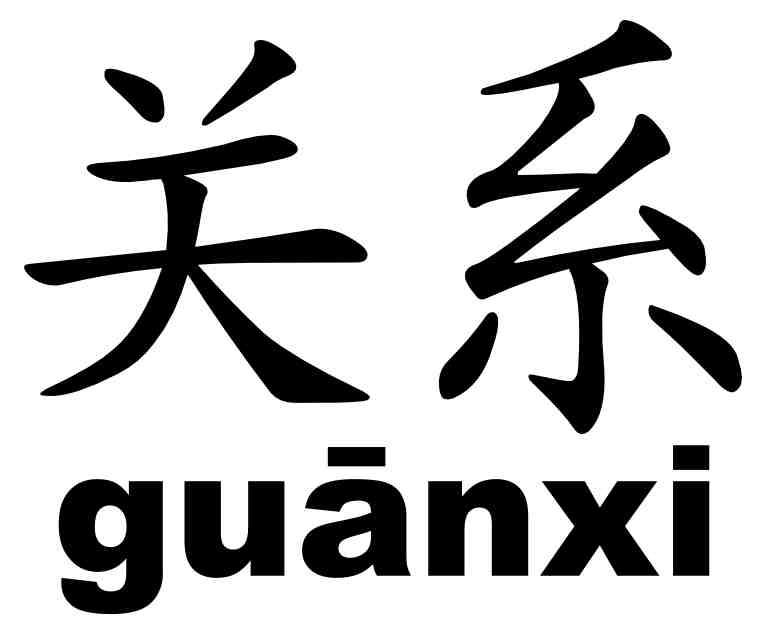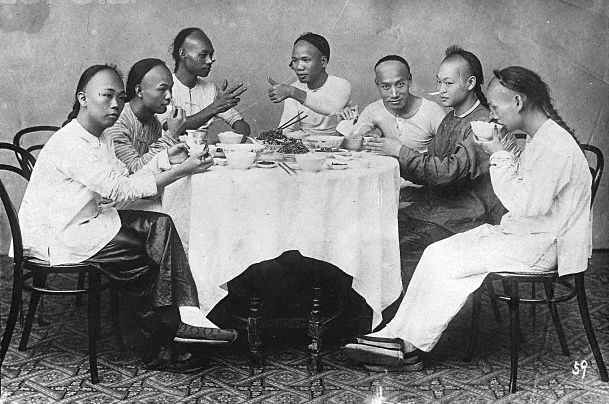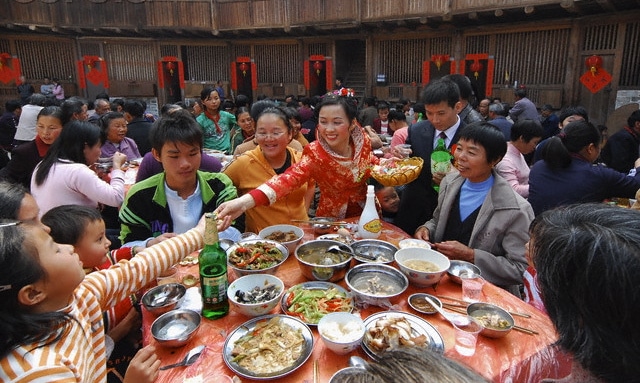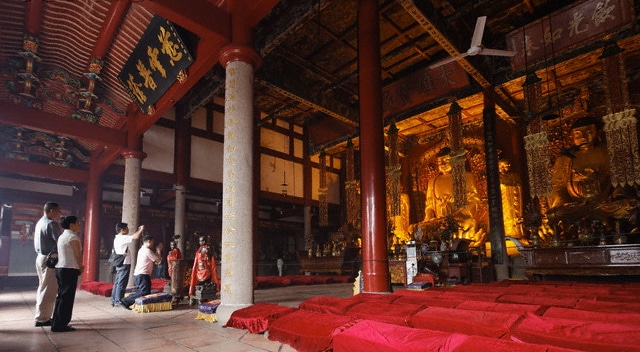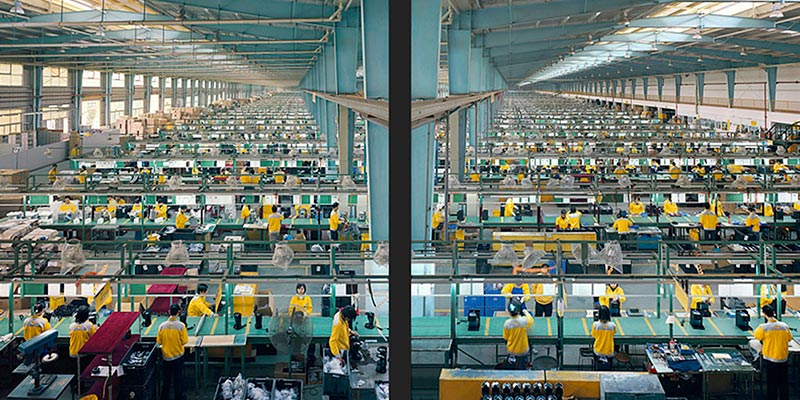Guanxi is a term that defines the complex concept of relationship in China. By building and maintaining guanxi with personal contacts and business partners, you ensure a positive and stable relationship. Essentially, it is the oil that keeps the China motor running.
Perhaps nowhere else on the planet does the phrase, “It’s not what you know, it’s who you know” have more relevance than in China.
“Guanxi” (关系, pronounced “gwan-shee”) is usually translated as “social connections” or “relationships”. But these don’t tell the whole picture.
Guanxi is the key to getting anything done in China—the single most important factor for success in the country. The Chinese widely believe that it trumps intelligence, knowledge, talent, ambition…and even wealth.
Without the right guanxi, it’s hard to get ahead in China—competitors with better guanxi, for instance, can block you at every turn.
To get anything done in China, you need to navigate through China’s vast bureaucracy—dealing with all kinds of public officials, agencies and businesses.
Guanxi isn’t just for getting ahead in business and politics. It’s how things get done in China
This includes everything from getting help moving to meeting a potential spouse to finding a new job or apartment. For better or worse, guanxi is the oil that keeps wheels of commerce, politics and society in general running in China.
Guanxi: Mutual Dependence (i.e. Obligation)
When you boil it down, guanxi is a system of mutual obligation—one that has been described as “relationships based on mutual dependence.”
A simpler way of putting it is that it’s based the idea of “You scratch my back and I’ll scratch yours”.
Deeply embedded in Chinese culture for millennia, this intricate web usually consists of:
- Family;
- Relatives;
- Former classmates;
- Co-workers;
- Member of organizations;
- Former or present military cohorts;
- …as well as those who you meet through these contacts.
But it’s not just about your own influence and contacts. Because relationships are nurtured through reciprocating favors, this means that guanxi also encompasses your personal obligations or “social debts”.
The Idea of “Social Debts”
In China, it’s not just who you know.
It’s also how others in your network see their obligations to you.
Every Chinese person maintains a kind of ongoing mental abacus that remembers all of the favors that they’ve provided…as well as all of the debts that they’ve accumulated.
Traditionally, these relationships are generally considered lifelong. You could lose touch with someone for years—even decades—after gaining your initial favor and that person can still call in a reciprocal favor out of the blue.
In such a system, failing to return a favor is a major moral transgression—almost a mortal sin in the eyes of the Chinese.
Those who gain a bad reputation are quickly voted off the island, so to speak; they can find that whatever guanxi power they’ve built up has rapidly evaporated.
Foreigners in China: Building Guanxi?
Westerners sometimes have a problem with this idea—complaining that it’s unfair and underhanded.
The guanxi system seems to go completely against the Western mantra of taking personal responsibility for your own actions (as well as success and failure). Reflecting a strong sense of independence and individualism (“I did it my way”), many feel that seeking and depending on connections is not the “Western way”.
But in general, you don’t hear the Chinese complaining that “life isn’t fair.”
Indeed, since the dawn of ancient China, there was little that was fair in Chinese society. Throughout Chinese history, the prevailing motto has been “might equals right”.
The common man had little personal freedom and lots of rules and laws to follow. Unlike Western cultures, ordinary people in China had no inalienable rights to protect them from people in power.
For thousands of years, bureaucracy was universal and honed to perfection. In short, no one expected to get their way because it was “right” or “fair”.
In fact, laws in China were usually designed to serve those in power (and honestly…has that really changed?).
They were often arbitrary and ever-changing (depending on whichever dynasty/egomaniac was in power at the time). While Western societies developed to be legally based—with the rule of law enforced fairly, more or less…
…Chinese society was controlled by the capricious rules of those in power.
Using Bribery in China: Acceptable?
The upshot is that the Chinese have always relied on working around the system to get things done. This meant using connections and making deals behind the scenes (using bribes if necessary).
The Chinese have a term for it: 后门, or hou men, which literally means “back door”.
In such a system, relationships take on a greater importance. In general, the Chinese respect real relationships more than artificial rules.
This helps explain why the Chinese tend to flaunt the rules. I’ve used the example of Chinese men smoking in No Smoking areas many times before because it’s the most visible (and annoying) to many Western tourists visiting China.
I’ve seen men smoking inside the ancient Forbidden City (made up of wood), despite No Smoking signs everywhere. I’ve seen policemen and other officials lighting up right next to No Smoking signs.

Cost of Doing Business in China
In a society where “guanxi” and connections take on such an important role, the typical Western way of doing business is usually ineffective (and can even be considered arrogant or rude).
It’s no secret that foreign business people in China need to cultivate guanxi as quickly as possible. Western business people learn pretty quickly that going through the “official” channels to navigate the Chinese bureaucracy is an exercise in futility.
Even something as seemingly easy as getting an application rubber-stamped can be a long and frustrating process without the proper guanxi.
Some might even go so far as to say that China’s vast bureaucracy is virtually impossible without the right guanxi.
On the other hand, when dealing with anything requiring government approval, the people with right connections can get around virtually any official regulation.
To get things done, you need a Chinese partner who has the right guanxi (one who you can also trust….a big question mark).
For instance, it’s common for business people operating in a certain region to hire a relative of a powerful local official to grease the wheels of commerce.
Word of Caution with Guanxi
Foreign ex-pats and business people shouldn’t take this guanxi thing too lightly.
The main point is to remember that when someone is doing you a favor, they’re not necessarily just “being nice”. There may be an implicit agreement that you’ll someday scratch their back.
So understand what you’re getting yourself into before you get locked into a never-ending cycle of giving and returning favors.
Try to understand the full implications of accepting a favor, especially a big one. Your Chinese friend may assume that your country operates on a similar guanxi system; they might assume that you have some pull back home to hook them up in the future.
Be wary of building up a bank of obligations.
For instance, I’ve heard of stories where a Chinese friend asked an American friend to use their connections to help get their kid accepted into a university or help get their travel visas approved (or to even help a US citizen get a China visa). So unless you work for the Admissions Department at Harvard or at the U.S. State Department, you probably want to avoid their disappointment when they learn you don’t have the ability to do that.
Instead, the goal is for you to stay even—whether in your business or personal life. Be wary about building up bank of obligations.
Perhaps a good motto for long-term residents in China to live by is “There’s no such thing as a free lunch”.
Chinese Banquets and the Art of Relationship Building
Needless to say, the Chinese spend a lot of time, energy, and money in developing and nurturing connections. Many invest decades—a lifetime even— in building up their network and extending their influence.
And the most common bonding experience in China to cement a new relationship is the banquet dinner.
For instance, after a businessman uses his network to get introduced to a local official, he’ll typically start the relationship by treating him to a fancy dinner. The banquet consists of a never-ending procession of dishes coming out of the kitchen (along with plenty of booze).
Afterwards, the businessman might even take the official to a karaoke bar, where additional “favors” are doled out. A traditional invite often included the phrase “yan jiu yan jiu” (literally “smoke alcohol smoke alcohol”) indicating that the guest will also leave with parting gifts (expensive cigarettes and liquor).
The banquet dinner is an all-purpose Chinese bonding experience, not just to bribe officials.
It’s also the primary mode of social interaction among the Chinese, whether bonding with new friends, repaying a favor, or just keeping up good relationships. Older relatives are supposed to treat younger ones, though friends naturally take turns picking up the bill (qing ke, or “being the host”).
Weddings in China are centered on the banquet dinner. Unlike many Western weddings (church, reception, dinner, dancing, drunken groping, etc), Chinese weddings are almost always held in large banquet halls or restaurants.
Guests are assigned seats at circular tables….and sit there for the entire wedding. Dishes are slowly served throughout the event—mixed in with the actual “ceremony” (usually an introduction of the bride, groom, parents, along with some speeches).
Later, the bride and groom slowly make their rounds to toast and thank each table for coming….and the whole affair is over in a few hours!
One thing that struck me was how little the guests mingled. In general, the Chinese (and Taiwanese) are reluctant to just introduce themselves out of the blue—they like to wait for a third party to do it (which is related to this Chinese concept of In and Out groups).
Instead, guests were assigned to tables according to the bride and groom side, with each side talking among themselves.
Since we’re talking about guanxi, I should also note that wedding gifts also reflect this mental accounting list (perhaps a bit too transactional for Western tastes).
As each guest arrives, they check in by giving their wedding gift (a red envelope stuffed with cash). A relative takes it and records the gift so that everyone is clear on the amount of commensurate guanxi that has just been accumulated for future reference.
Chinese Nepotism and Corruption
The guanxi system is certainly not without it’s downsides.
The Chinese are not shy about their connections. On the contrary, they’re usually proud that they know people in power.
One negative consequence is nepotism, which continues to be rampant in China. Pervading all aspects of business and government, many jobs filled based on family ties, not merit—undermining a system based on merit and scholarship.
For instance, it’s commonly accepted that you can get your kid accepted into the most prestigious universities with the right guanxi. I recall reading a story about how a certain small high school in Nanjing only had three seniors accepted into university; none of the three was even close to the top of their class.
Similarly, cronyism and corruption are harder to eradicate in a society that has long operated on the basis of personal relationships and back room dealings.
How the Internet is Re-Shaping Guanxi
Some good news though. In the age of the Internet—despite government censorship—justice sometimes prevails in China, even for those with big-time guanxi.
Way back in October 2010, a famous hit-and run case occurred in northern China that exploded into an online scandal known the “Li Gang scandal”.
The case involved 23-year old Li Qiming, the rich, spoiled son of Li Gang, a powerful deputy police chief of the district.
Driving around Hebei University after some hard partying, the drunken Li crashed into two female students. One was seriously injured and the other died from her injuries the following day. After a crowd and security guards managed to stop him from fleeing the scene, Li shouted…
“Go ahead and sue me if you dare– my father is Li Gang!”
After government censors tried to block the coverage (worried about the abuse of power angle), the story went viral online. There was so much public outrage that days later, the father and son were giving effusive apologies on CCTV, China’s national network.
In addition to having to pay significant compensation, Li QiMing was sentenced to six years in prison.
The phrase, “My father is Li Gang” has become something of a bitter inside joke in China and a catchphrase for shirking any responsibility — washing the dishes, being faithful to a girlfriend — with impunity.

